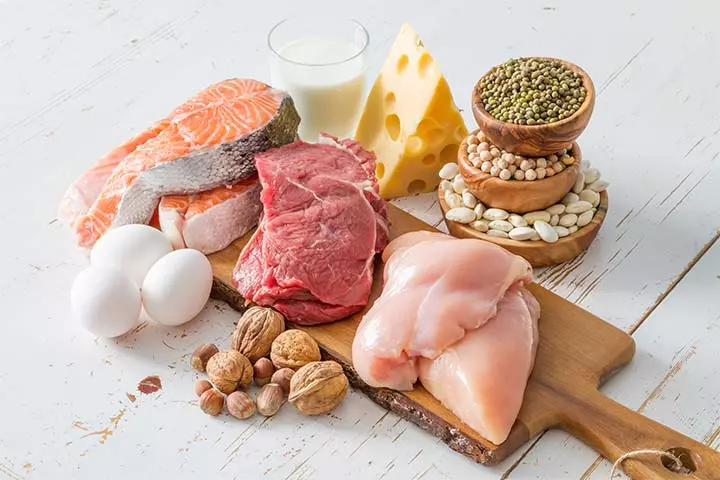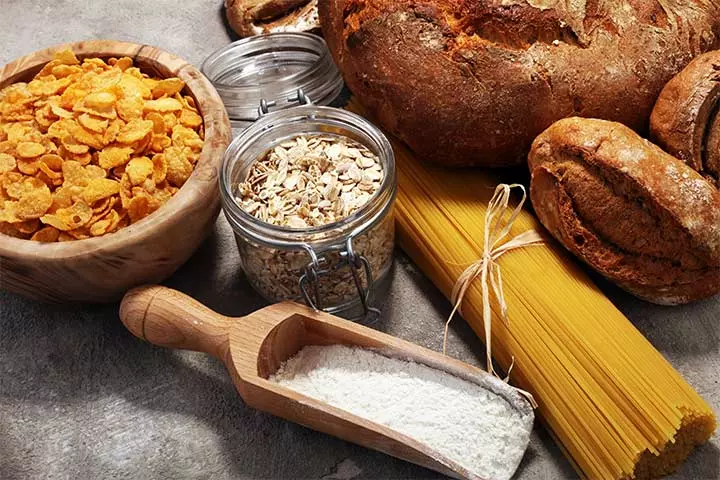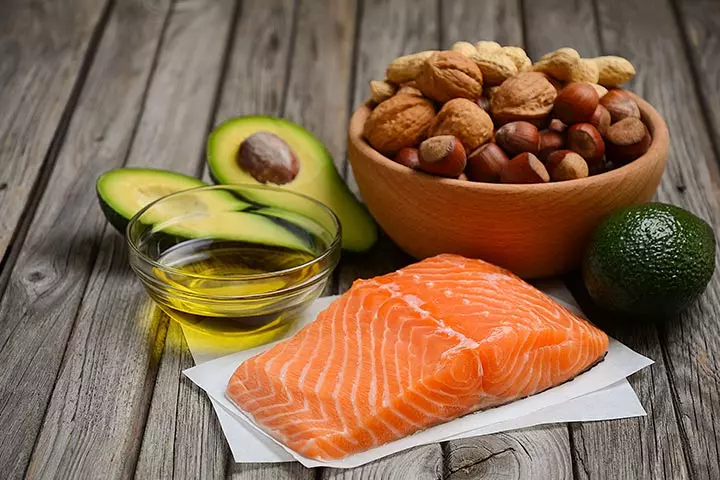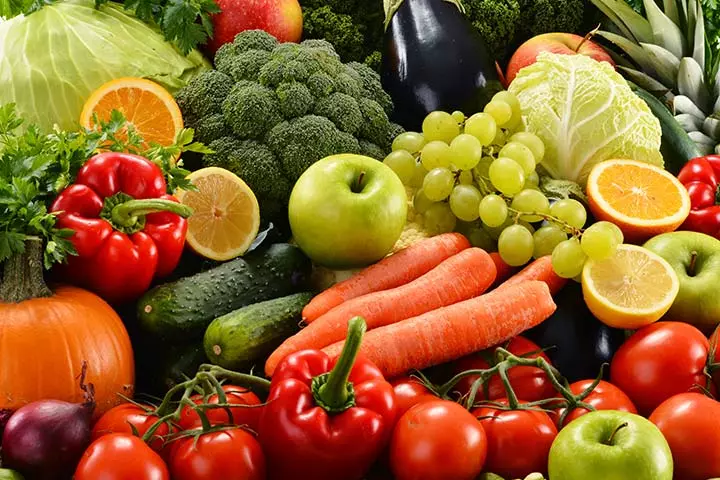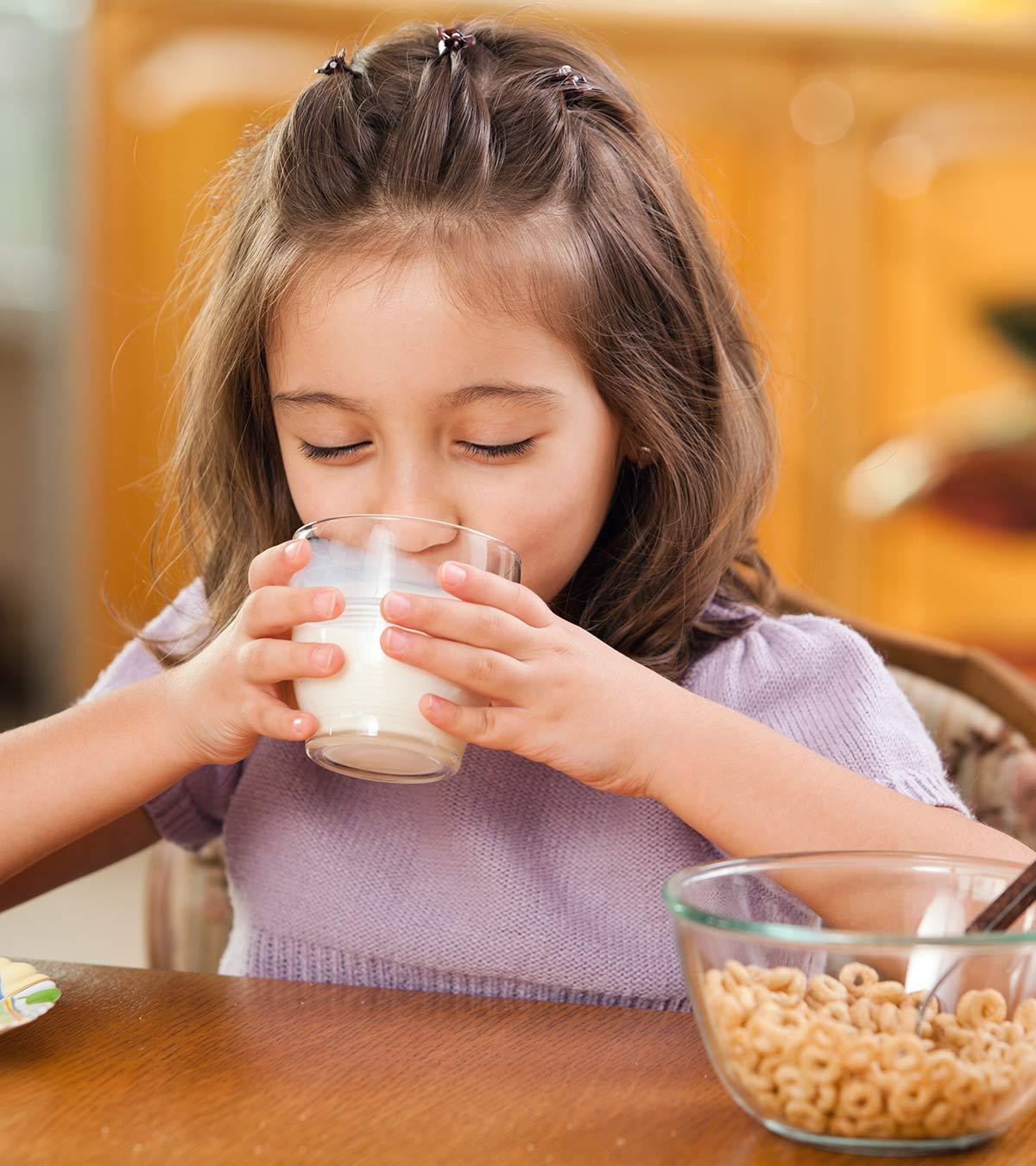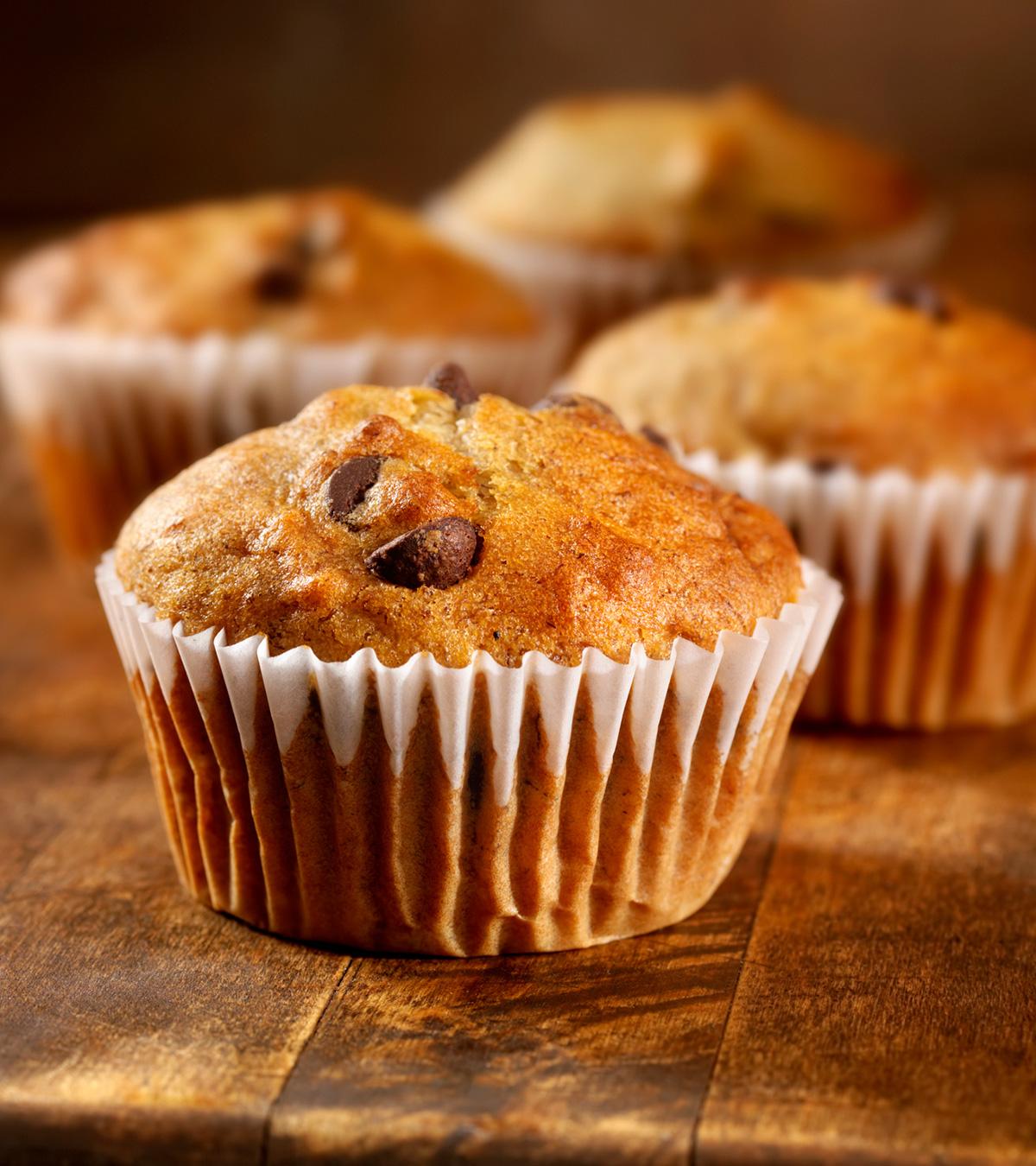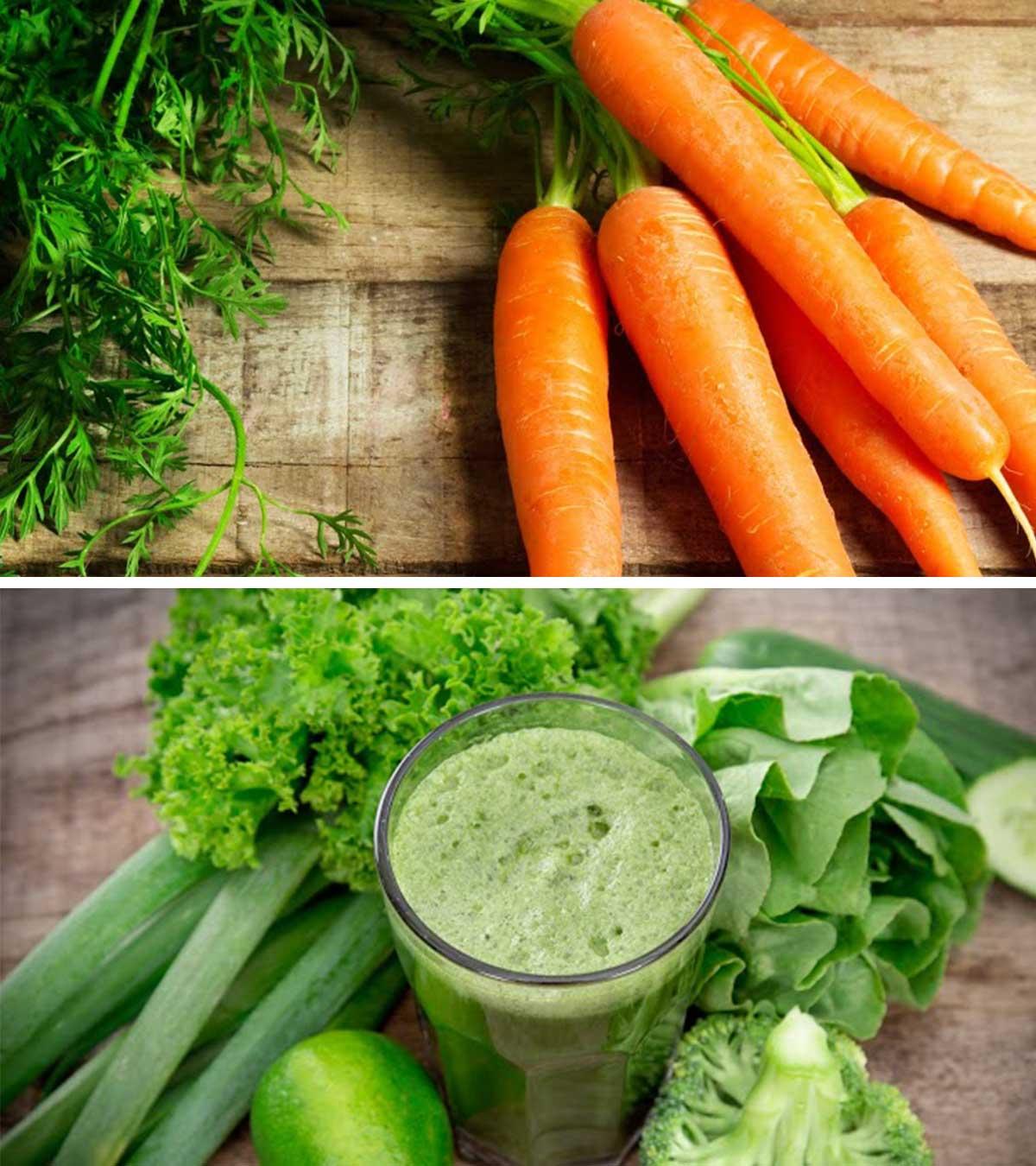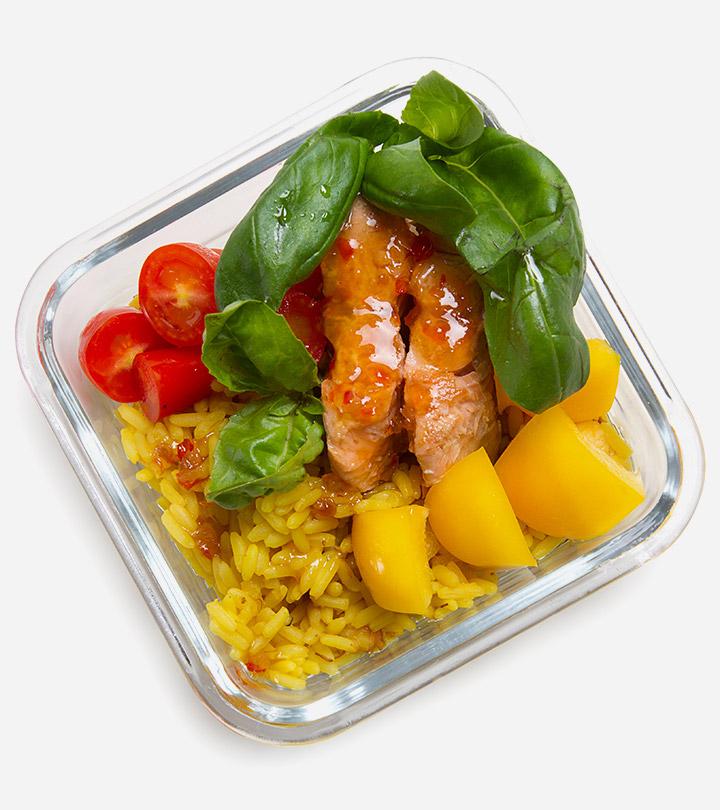
Image: Shutterstock
Teenagers are full of energy, and it is important to give them the proper diet to help maintain them. If you have an energetic teenage boy at home, this post on a healthy teenage diet plan is for you. Studies have shown that teen boys need more calories as compared to teen girls (1). Although both of them need the same nutrients, the kinds of food that the boys need to consume can be different from the ones for the girls. Continue reading this post as we tell you more about the diet for teenage boys, its importance, and a diet plan that you could put to use.
Nutrients A Teenage Boy Needs
All nutrients are vital for a child’s growth, and they should have a balanced diet to achieve that. The primary nutrient groups are proteins, carbohydrates, fats, vitamins, and minerals. Proteins, carbs, and fats are the energy sources for the body, while vitamins and minerals are essential for the overall development of a teenage boy. Vitamins and minerals can be obtained from the same foods that also supply protein, carbohydrates, and fats.
1. Protein
- Protein is the building block of muscles, and 50% of body weight is made of protein (1).
- The most common sources of protein are meat, eggs, nuts, seeds, legumes, and dairy products.
- Focus on providing lean meat to your teenage boy since it contains adequate protein but low-fat content.
According to the National Health and Nutrition Examination Survey (NHANES) data, protein intake from foods and beverages increases with age in male children and teens. The graph depicts that children aged 6-11 years usually consume 68.8 grams of protein per person daily, which increases to 86.5 grams per person in teens aged between 12 and 19 years.
Daily dietary protein intake of male children and teens in the US (2017-2018)
Source: Daily protein intake from food and beverages of male children and adolescents in the United States in 2017/18, by age group; National Health and Nutrition Examination Survey (NHANES) Point to consider
Point to consider2. Carbohydrates
- Carbohydrates are of two types: complex and simple (2) (3) (4). Complex carbohydrates burn slowly and provide sustained energy. Examples include wheat flour, rice, grains with fiber, and starchy vegetables, such as potatoes.
- Simple carbohydrates are sugars found in sweetened products such as cakes and beverages but are also found in healthier sources such as fruits, vegetables, and dairy.
- Carbohydrates provide the energy that teen boys need for their everyday activities. Complex carbohydrates should make 50 to 60% of a teenage boy’s carbohydrate intake.
3. Fats
- Fats could be monounsaturated, polyunsaturated fats, or saturated fats.
- Monounsaturated fats are the healthiest of all and are found in foods such as olive oil, peanut oil, peanut butter, and nuts like cashews, walnuts, and almonds.
- Polyunsaturated fats are found in oils from seeds of sunflower, safflower, cottonseed, and sesame seed.
- Saturated fat contains the most amount of cholesterol. It is found in dairy, red meat, coconut, and palm oil.
- Fats are essential for the body to absorb fat-soluble vitamins A, D, E, and K. Fat should not make for more than 30% of a teenage boy’s diet; and saturated fat content should not be more than 10% of the total fat intake.
4. Vitamins
- A teenage boy can get sufficient vitamins by consuming an assortment of fruits and vegetables.
- Teenagers usually tend to get less vitamin D than needed. Foods fortified with vitamin D (health drinks and cereal) and some exercise in the morning sun should prevent the likelihood of vitamin D deficiency.
 Quick fact
Quick fact5. Minerals
- Minerals are micronutrients that are needed in minimal quantities.
- If your teenage boy has a healthy balanced diet, then obtaining the daily recommended amount of minerals from the food they eat will not be difficult. Essential minerals they should get through food include calcium, iron, zinc, magnesium, and iodine.
It is essential to provide the right amount of servings of different foods to ensure that your boy can get all the vital nutrients he needs
.
What Is An Ideal Diet Plan For Teenage Boys?
Below are the ideal dietary guidelines for a teenage boy to meet the daily recommended calorie intake of 2800 calories.
| Food Group | Number of servings a day |
|---|---|
| Whole grains and refined grains | 11 |
| Vegetables | 5 |
| Fruits | 4 |
| Dairy products | 3 |
| Meat, legumes, and nuts | 3* |
* The total of the servings should not exceed 7 ounces (200 grams)
Source: US Department of Health and Human Services (5)
Prior to understanding the number of servings required for your teenage boy, it is beneficial to have knowledge of portion control and the size of each serving. Below is the quantity per serving of a food group:
| Food Group | Contents of One Serving |
|---|---|
| Whole grains and refined grains | 1 slice of bread or 1 cup of ready-to-eat cereal or 1/2 cup of cooked cereal, rice, or pasta |
| Vegetables | 1 cup of raw leafy vegetables or 1/2 cup of other vegetables cooked or raw or 3/4 cup of vegetable juice |
| Fruits | 1 medium apple, banana, orange, pear or 1/2 cup of chopped, cooked, or canned fruit or 3/4 cup of fruit juice |
| Dairy products | 1 cup of low-fat milk or yogurt or 1 1/2 ounces of low-fat natural cheese (such as Cheddar) or 2 ounces of low-fat processed cheese |
| Meat, legumes, and nuts | 2-3 ounces (57-85 grams) of cooked lean meat, poultry, or fish or 1 egg counts as 1 ounce (28 grams) of lean meat or 1/2 cup of tofu counts as 1 ounce (28 grams) of lean meat or 1/3 cup of nuts counts as 1 ounce (28 grams) of meat or 1/2 cup of cooked dry beans or 2 1/2-ounce soy burger or 2 tablespoons of peanut butter |
Source:
US Department of Health and Human Services (5)
The above diet should allow a teenage boy to have requisite calories and nutrients for healthy growth. While parents strive to provide nourishment through meals, children often desire a tasty, between-the-meals snack, which could lead to extra calorie consumption.
Is It Okay For Teenagers To Have A Snack?
Yes, children, especially teenagers, are quite likely to feel hungry between meals. There is nothing wrong with snacking as long as it is healthy like a fruit, a bowl of nuts, or any other homemade finger food. Processed foods or junk foods with added sugar and saturated fats can be bad. According to the CDC National Center for Health Statistics (NCHS) data from 2015 to 2018, more than 36.3% (above one-third) of children and teenagers consumed fast food regularly. Additionally, it was observed that adolescents had a higher fast food intake compared to children.
Some healthy snacks ideas for teenage boys could be (6) (7):
- Ready-to-eat fruits that require no peeling of skin or have skin that is easy to peel. A few examples are apples, pears, bananas, and grapes.
- Vegetables that can be enjoyed raw or boiled, with some seasoning. Examples include raw carrots, boiled celery, and broccoli seasoned with spices.
- If the teenager wants something exciting, then you can consider making a homemade vegetable omelet or cook a small bowl of vegetable spaghetti.
Even healthy meals could accumulate excess calories when not restricted. Eating nutrient-dense food is healthy when you eat in the right quantities.
How Many Meals And Snacks A Day Is Healthy?
An ideal combination for teenage boys’ healthy body weight management is to have three meals and three snacks a day (8). Skipping breakfast is not ideal since it provides the required calories to jump-start the day. It may even minimize the risk of overeating or binge eating later in the day.
Frequently Asked Questions
1. How do I help my teenage son lose weight?
Consider providing a diet rich in fiber, encouraging them to avoid sugary and carbonated drinks, promoting regular physical activity, limiting screen time, and monitoring portion size (8).
2. What is the right age for my teen to start dieting?
Cutting on the diet is not a great idea for teens without taking any expert advice. Moreover, a study reported that early dieting might increase BMI in adulthood (9).
3. What foods should a teenager avoid?
Teenagers should avoid or limit foods containing excess salts, fats, and sugars. They should also limit or avoid low-fiber foods and caffeinated drinks (10).
4. How many eggs can a teenager eat in a day?
Some experts suggest teens consume one to two eggs daily to get enough lean protein and essential nutrients. It is important to ensure that adolescents receive sufficient energy, protein, vitamins, and minerals to support their growth and development needs.
Teens who are picky eaters, engage in athletic activities or have a medical condition that affects protein metabolism may require more protein than usual. It is advisable to consult a doctor or nutritionist for guidance on the appropriate egg intake for a teenager (11) (12).
5. What are the reasons for unhealthy eating in a teenager?
Research suggests that a teen’s eating behavior is influenced by multiple factors which may between males and females (13). However, some of the common factors that could alter an adolescent’s behavior include peer pressure, emotional factors, such as stress, and poor role models.
6. How do I encourage my teenager to eat healthy?
Lead by example by eating healthy foods yourself. In addition, involve your teenager in meal planning and grocery shopping to help them learn about nutrition and healthy food choices. Keep healthy foods readily available at home to limit their access to unhealthy food options. Talk to your teens about the benefits of healthy eating and the risks associated with unhealthy eating habits (14).
Teenage boys have high energy needs compared to girls. They also gain more muscle mass, which gives them a muscular structure. Thus, a teenage boy’s diet should contain healthy foods from different food groups, especially complex carbohydrates and high-quality lean protein. To ensure your teen is eating sufficiently, serve them three main meals with at least two snacks every day. Educate them about the importance of healthy eating and guide them to make healthy choices while eating at home or outside. Furthermore, inform them about fad diets and discourage them from skipping meals, especially breakfast, which offers energy to kickstart the day.
Infographic: Nutrients A Teenage Boy Needs
Teenage boys have a lot on their plate. From studying hard to get into a good college to actively participating in sports and other extracurricular activities, boys need fuel to keep pushing forward. So provide your son with the nutrients that will keep them healthy to conquer their teenage years with a strong functioning body. Illustration: Momjunction Design Team
Key Pointers
- A well balanced, healthy, and nutrient-rich diet is crucial for the physical and mental development of teenage boys.
- During the teenage years, boys go through a rigorous growth phase, and their overall calorie requirement increases.
- Proteins, carbohydrates, and fats are essential for energy, and foods rich in vitamins and minerals provide nourishment.
- To provide sufficient energy and nutrition, three meals and three snacks a day are recommended.
- Processed foods and sugary drinks should be limited as they are high in unhealthy fats.
Image: Stable Diffusion/MomJunction Design Team
Teenagers are full of energy, for which a healthy diet is needed. The video shared below shares good tips on improving health by making smart food choices.
References
1. A teenager’s nutritional needs; American Academy of Pediatrics
2. Carbohydrates; American Heart Association
3. Simple carbohydrates; US National Library of Medicine
4. Complex carbohydrates; US National Library of Medicine
5.Dietary Guidelines for Americans; US Department of Health and Human Services
6. Take charge of your health: a guide for teenagers; US Department of Health and Human Services
7. 10 tips: Choose the foods you need to grow; United States Department of Agriculture
8. Underweight teen boys; NHS UK
9. Erin Enriquez et al.;Age at dieting onset, body mass index, and dieting practices: A twin study; National Library of Medicine
10. Protein For The Teen Athlete; American Academy of Pediatrics
11. Food Portions: How Much Should I Eat?; Nemours KidsHealth
12. Nutrition and healthy food for teenagers; Raising Children
13. D C Cusati, B M Shannon; Influences on adolescent eating behavior; National Library of Medicine
14. Healthy eating habits for teenagers; Raising Children
Read full bio of Dr. Prakhar Nyati
Read full bio of Rohit Garoo
Read full bio of Shinta Liz Sunny





